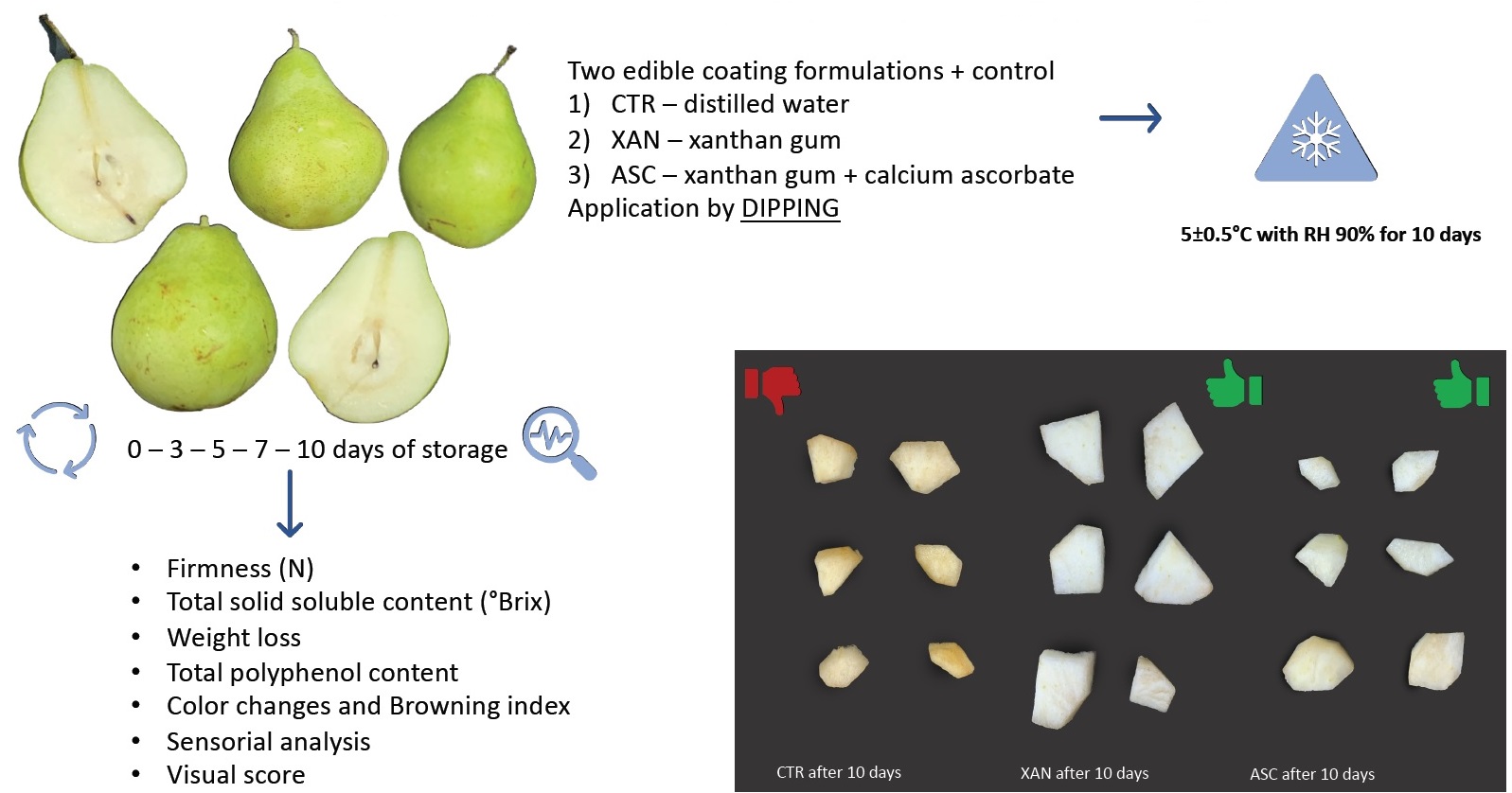Use of xanthan gum and calcium ascorbate to prolong cv. Butirra pear slices shelf life during storage

Published 2023-01-26
Keywords
- Browning,
- edible coating,
- fresh-cut,
- pear,
- respiration
How to Cite
Copyright (c) 2023 Eugenia Guccione, Alessio Allegra, Vittorio Farina, Paolo Inglese, Giuseppe Sortino

This work is licensed under a Creative Commons Attribution 4.0 International License.
Abstract
After cut, pear fruit (Pyrus communis L.) during shelf-life can be subjected to colour and flavour changes. To maintain flesh colour and firmness, different technologies could be employed during shelf-life, such as chemical, physical and edible coating treatments. In the present study, the effects of two edible coating formulations containing xanthan gum and calcium ascorbate on fresh-cut pear fruit were investigated. After harvest, 200 fruits were cut and coated with Xanthan Gum (XAN) and distilled water or Xanthan gum + Calcium Ascorbate (ASC), respectively, while control (CTR) pear fruit slices were soaked in distilled water and lastly packed in polyethylene terephthalate (PET) packages sealed with a composite film (PP-PET). All samples were stored at 5±0.5°C with RH 90% for 10 days. Measurements were carried out at 3, 5, 7 and 10 days of storage evaluating visual quality score, browning index, color, total solid soluble content (TSS), flavor, ascorbic acid content and total phenols content. The results showed that ASC treatment was the most efficient treatment in terms of color changes, ascorbic acid content, visual quality score and browning index, until the 7th day of storage. Moreover, ASC treatment reported lower mean values in terms of taste and flavour score if compared to CTR and XAN treatments. Untreated pear slices (CTR) kept good values concerning flavor score until the 3rd day of storage while on the 5th and 7th day off-flavour values were the same as treated samples.




